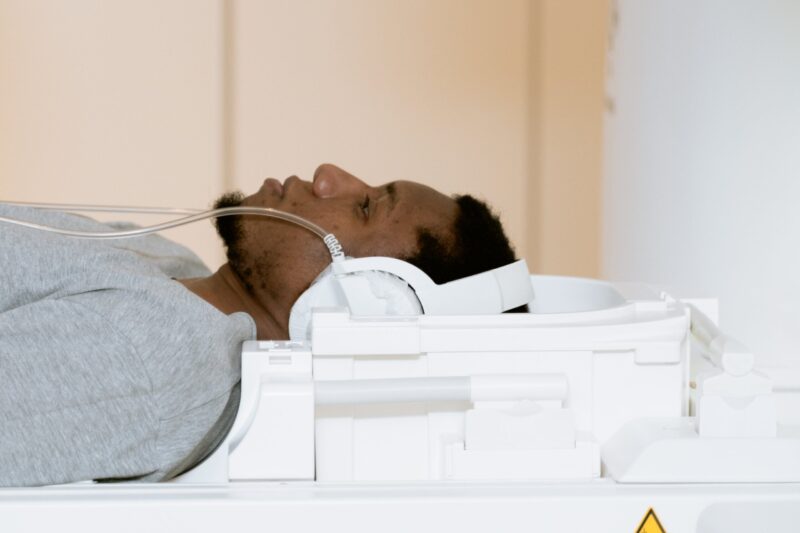The role of occupational therapy has become increasingly recognized due to its impact on patient outcomes and overall well-being. As hospitals strive to provide comprehensive and patient-centered care, integrating occupational therapy services has become a crucial consideration.
This blog aims to explore the fundamentals of occupational therapy, its benefits in a hospital setting, and essential steps for healthcare facilities to ensure they are ready to embrace this valuable aspect of patient care.
What Occupational Therapy Entails
Occupational therapy (OT) is a holistic healthcare profession that focuses on helping individuals achieve independence and improve their ability to perform everyday activities, or “occupations.” These occupations can include self-care, work, and leisure activities.
Occupational therapists work with individuals of all ages to address physical, cognitive, and emotional challenges. The core principles of occupational therapy involve promoting engagement in meaningful activities to enhance overall quality of life. The roles of occupational therapists include:
- Patient Assessment: Occupational therapists conduct thorough assessments to understand a patient’s strengths, limitations, and goals. This includes evaluating physical abilities, cognitive functions, and emotional well-being.
- Treatment Planning: Based on the assessment, occupational therapists develop personalized treatment plans that may involve exercises, activities, adaptive strategies, and environmental modifications to improve the patient’s ability to engage in daily life activities.
- Rehabilitation and Adaptation: Occupational therapists work with patients to facilitate rehabilitation after injuries or surgeries. They also provide guidance on adapting environments to accommodate individuals with disabilities.
- Mental Health Support: In addition to physical health, occupational therapists play a vital role in mental health support, addressing issues such as anxiety, depression, and stress through therapeutic interventions.
- Pediatric Services: Occupational therapists work with children to address developmental challenges, sensory processing issues, and enhance their ability to participate in school and social activities.
The Benefits of Integrating Occupational Therapy in your Hospital
The decision on whether you should integrate occupational therapy services shouldn’t be ignored. This is especially true for hospitals that have a patient-centered care system in place. The advantages of occupational therapy include:
1. Holistic Patient-Centered Care
Integrating occupational therapy in hospitals contributes to a more holistic and patient-centered approach to care. By addressing not only the medical condition but also the functional aspects of daily life, hospitals can enhance the overall patient experience.
Hospitals incorporating occupational therapy into their care plans experience improved patient outcomes, reduced readmission rates, and enhanced patient satisfaction.
2. Enhanced Rehabilitation
Occupational therapists play a crucial role in early intervention, working with patients soon after surgeries, injuries, or medical events. This proactive approach supports faster and more effective rehabilitation.
3. Chronic Disease Management
Patients with chronic diseases often face challenges in managing their daily activities. Occupational therapists provide adaptive strategies and interventions to help individuals cope with the limitations imposed by chronic conditions.
Moreover, the integration of occupational therapy services contributes to an improved quality of life for individuals dealing with chronic diseases, fostering a sense of control and self-efficacy.
4. Mental Health Support
Mental health is an integral component of overall well-being. Occupational therapists address mental health concerns, providing coping strategies and interventions that align with patients’ individual needs.
By addressing mental health aspects, occupational therapy contributes to reducing the psychosocial impact of medical conditions, fostering resilience and emotional well-being.
Is Your Hospital Ready to Embrace Occupational Therapy?
Several queries have to be addressed to ensure a hospital is ready to integrate occupational therapy services. Your hospital shouldn’t only have the required amenities, but it should be administratively ready to handle more patients’ volume.
Leadership Support: Ensure there is support from hospital leadership for the integration of occupational therapy services. Leadership endorsement is essential for the successful implementation of new programs.
Staff Training and Awareness: Assess the readiness of healthcare staff to collaborate with occupational therapists. Provide training and create awareness about the role and benefits of occupational therapy within the hospital setting.
Infrastructure and Facilities: Allocate designated spaces within the hospital for occupational therapy services. These spaces should be equipped with the necessary tools and equipment to facilitate therapy sessions.
Collaboration and Interdisciplinary Approach: Promote a culture of collaboration between occupational therapists and other healthcare professionals. An interdisciplinary approach ensures that patient care is well-coordinated and comprehensive.
Technology Integration: Ensure that occupational therapy documentation is seamlessly integrated into the hospital’s electronic health records (EHR) system. This integration enhances communication and information-sharing among healthcare providers.
Further, explore the incorporation of telehealth capabilities for occupational therapy services, especially considering the potential for remote consultations and follow-ups.
Patient Education and Engagement: Implement patient education programs to raise awareness about the benefits of occupational therapy. Engage in proactive communication to inform patients about available services.
You should also foster collaborative goal-setting between patients and occupational therapists. Involve patients in the development of personalized treatment plans to enhance engagement and motivation.
Conclusion
As hospitals continue to strive to improve patient care, the integration of occupational therapy emerges as a valuable and transformative step. The holistic approach of occupational therapists in addressing physical, cognitive, and emotional aspects aligns with the principles of patient-centered care. By assessing the aforementioned strategies, your hospital can be well-prepared to embrace occupational therapy as an integral part of its comprehensive healthcare services. The successful integration of occupational therapy not only enhances patient outcomes but also contributes to the overall well-being and satisfaction of individuals under the care of the hospital.


Write a comment
Your email address will not be published. All fields are required